
Franco IV e Franco I were an Italian pop musical and vocal duo, active between the 1960s and the early 1970s.

Franco IV e Franco I were an Italian pop musical and vocal duo, active between the 1960s and the early 1970s.
The duo consisted of Francesco "Franco" Romano (born in Naples on 26 July 1946) and Francesco "Franco" Calabrese (born in Naples on 10 March 1943). [1] They started performing under their birth names in the early 1960s, in music halls and clubs of Amalfi Coast. [1] Initially the duo had a repertoire of cover songs, mainly classics of the Canzone Napoletana, rearranged in a modern beat style. [1]
In 1968, shortly after adopting their stage name and starting to record original songs, they got a large success with the song "Ho scritto t'amo sulla sabbia", which reached the first place and stayed sixteen weeks in the top ten of the Italian hit parade. [1] [2]
After a number of minor hits, the duo disbanded in the early 1970s as Romano decided to abandon his music career to pursue his studies. [1] Calabrese continued his musical career, recording some singles and continuing on performing live. [1]
Themusic of Italy has traditionally been one of the cultural markers of Italian national and ethnic identity and holds an important position in society and in politics. Italian music innovation – in musical scale, harmony, notation, and theatre – enabled the development of opera, in the late 16th century, and much of modern European classical music – such as the symphony and concerto – ranges across a broad spectrum of opera and instrumental classical music and popular music drawn from both native and imported sources.

Francesco Guccini is an Italian singer-songwriter, considered one of the most important cantautori. During the five decades of his music career he has recorded 16 studio albums and collections, and 6 live albums. He is also a writer, having published autobiographic and noir novels, and a comics writer. Guccini also worked as actor, soundtrack composer, lexicographer and dialectologist.

Anna Maria MazziniOMRI, Anna Maria Quaini, known as Mina Mazzini or simply Mina, is an Italian singer. She was a staple of television variety shows and a dominant figure in Italian pop music from the 1960s to the mid-1970s, known for her three-octave vocal range, the agility of her soprano voice, and her image as an emancipated woman.
Naples has played an important and vibrant role over the centuries not just in the music of Italy, but in the general history of western European musical traditions. This influence extends from the early music conservatories in the 16th century through the music of Alessandro Scarlatti during the Baroque period and the comic operas of Pergolesi, Piccinni and, eventually, Rossini and Mozart. The vitality of Neapolitan popular music from the late 19th century has made such songs as 'O Sole mio and Funiculì Funiculà a permanent part of our musical consciousness.
Canzone napoletana, sometimes referred to as Neapolitan song, is a generic term for a traditional form of music sung in the Neapolitan language, ordinarily for the male voice singing solo, although well represented by female soloists as well, and expressed in familiar genres such as the love song and serenade. Many of the songs are about the nostalgic longing for Naples as it once was. The genre consists of a large body of composed popular music—such songs as "’O sole mio"; "Torna a Surriento"; "Funiculì, Funiculà"; "Santa Lucia" and others.

Jimmy Fontana was an Italian actor, composer and singer-songwriter. Two of his most famous songs are "Che sarà", performed also by José Feliciano with Ricchi e Poveri and "Il Mondo".

Vincenzo Jannacci, more commonly known as Enzo Jannacci, was an Italian singer-songwriter, pianist, actor and comedian. He is regarded as one of the most important artists in the post-war Italian music scene.
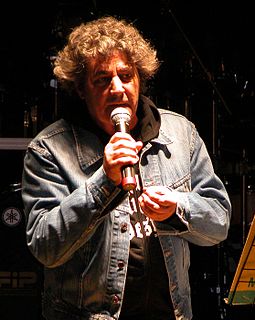
Faustino (Fausto) Leali is an Italian pop singer.

Carmen Villani is a former Italian pop singer and actress. She had a recognisable voice and an outstanding musical sense. Villani was a versatile performer, featuring elements of gospel and blues. She is considered among the finest examples of the early beat music in Italy. She also collaborated with some of the top film scorers in Italy. Villani's fame was limited to her homeland, where she charted records and gave several performances broadcast nationwide by RAI. After her failure to chart hits in the early 1970s, she became an actress in commedia sexy all'italiana films.
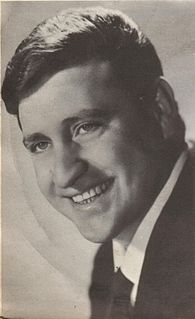
The sceneggiata or sceneggiata napoletana is a form of musical drama typical of Naples. Beginning as a form of musical theatre after World War I, it was also adapted for cinema; sceneggiata films became especially popular in the 1970s, and contributed to the genre becoming more widely known outside Naples.

Gianni Nazzaro was an Italian singer and actor.
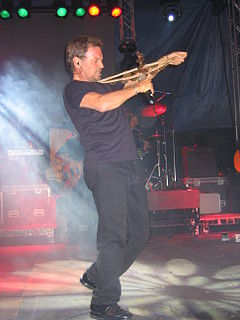
Francesco Luigi Simone is an Italian singer-songwriter, composer and television host.
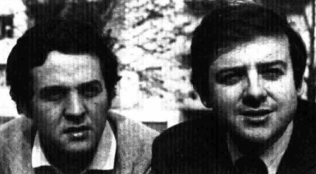
Renato Pozzetto and Cochi Ponzoni are an Italian musical and comedy duo who works as Cochi e Renato.
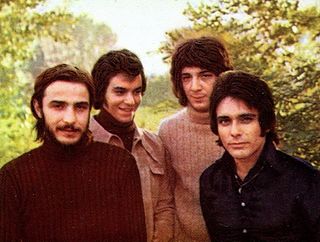
I Profeti were an Italian pop group, mainly successful in the late sixties and in the seventies.
La Bottega dell'Arte were an Italian pop music group active between 1974 and 1985.
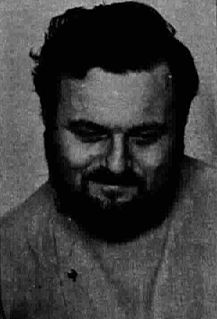
Sergio Bardotti was an Italian lyricist, composer and record producer.

Bruno Filippini is an Italian singer, mainly successful in the 1960s.

Gloria Christian is an Italian Canzone Napoletana singer, mainly successful between the second half of the 1950s and the 1960s.

"Arrivederci" is a 1959 Italian song composed by Umberto Bindi (music) and Giorgio Calabrese (lyrics). "Arrivederci" marked the record debut of Bindi, who recorded two versions of the song, but it was eventually led to success by Don Marino Barreto Jr., whose version topped the Italian hit parade.
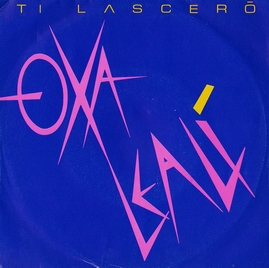
"Ti lascerò" is a 1989 song composed by Franco Fasano, Fausto Leali, Franco Ciani, Fabrizio Berlincioni and Sergio Bardotti, arranged by Fio Zanotti and performed by Anna Oxa and Fausto Leali. The song won the 39th edition of the Sanremo Music Festival, and the duo Oxa-Leali was subsequently chosen to represent Italy at the Eurovision Song Contest 1989.